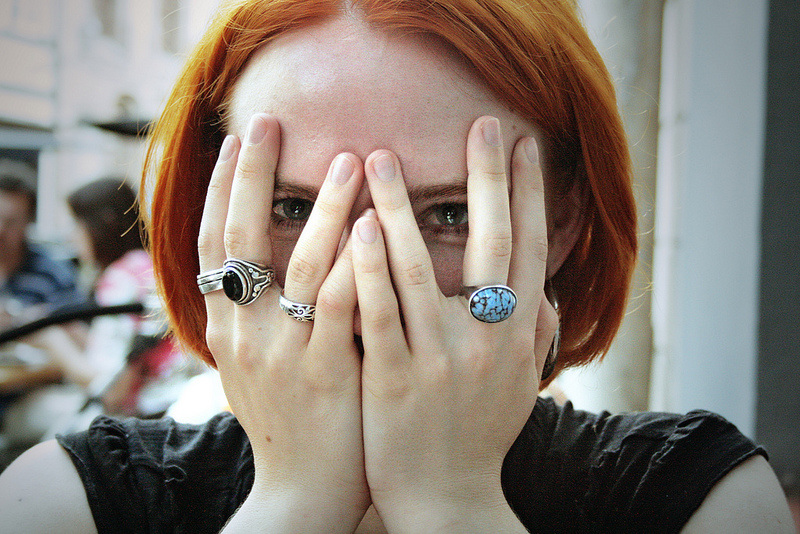|
by Megan Kennedy The mental health community is buzzing with talk about stigma. As a social work student, my mental health classrooms were filled with dialogue about the ongoing consequences of shaming individuals with mental health problems. As a professional, the effects of stigma are often detailed in the stories and everyday lives of my clients, and as an individual with a lengthy history of anxiety, I have personally felt the effects of stigma and witnessed stigma through others close to me. Considering roughly 18.6% of adults and 13.1% of children (ages 8-15) suffer from diagnosable mental health problems, chances are you have too. Most of us agree that stigma is harmful, but where does it come from and what can we do about it? Researchers report two distinct types of mental health stigma - social stigma and self- stigma. Social stigma results from prejudice attitudes and discriminatory actions that target individuals with mental health issues due to the assignment of psychiatric labels. Self-stigma, on the other hand, is characterized by one’s internalization of perceptions of discrimination.
A number of factors contribute to stigma. Historically, individuals with mental health concerns have been treated differently, rejected and abused. Dr. Graham Davey, a British professor of Psychology, notes that this kind of treatment stems from mistaken views that mental health problems steer people to act in more violent or unpredictable ways than those without such problems, or somehow people with mental health concerns are abnormal or different. However, none of these views have any basis in fact. Dr. Davey also includes the medical model as an unintentional source of stigmatizing beliefs, as this model usually signifies diagnoses and diagnoses implies a label to a “patient.” Such labels are often associated with undesirable attributes, which perpetuate the idea that individuals with mental illness and/or diagnostic labels should be viewed with concern. It’s no surprise that the most blatant perpetuation of mental illness stigma is at the hands of the media, as media portrayals often reinforce stigma with images of violence and homicide associated with mental health problems. Discussions concerning mass shootings and mental illness almost go hand in hand these days. Moreover, words used to represent mental illness are so common in our present-day vocabularies they almost always pass without comment or judgment. Psycho. Nut-job. Crazy. Insane. He’s lost his mind. She has some serious OCD. The list continues. For some, the nastiest consequences of stigma aren’t social injustices but the effect stigma has on help seeking behavior of those affected by mental health problems. The Scattergood Foundation reports a mere 30% to 40% of people with mental health problems seek treatment in the U.S., and up to 70% of adults and youth worldwide do not receive services for mental and behavioral health problems. Public health researchers attribute stigma as a major causative factor driving these alarmingly low rates of treatment. Moreover, stigma hurts treatment outcomes and hinders effective recovery from mental health problems. The good news is, there are many simple actions we can all take to help challenge mental illness stigma which include:
Break past the stigma and take the first step toward your therapy journey today. Learn more about what to expect in individual therapy.
Chris F.
12/14/2015 05:20:08 pm
In my experience, even mental health "experts" can privately discriminate against the mentally-ill. It is hard to define what truly constitutes a "healthy psyche," taking into consideration those components that may prompt a debate as to being deemed "necessary," such as the belief in a higher power or the role of your ego. A diagnosis can do more harm than good if it does not lead a client to seek the proper treatment. Thank you for bringing this oft-overlooked yet important topic to light. Comments are closed.
|
AuthorKambria Kennedy-Dominguez, LPC-S |
Phone: 972.755.9120 | Fax: 214.723.5345
533 W. 12th Street Dallas, TX 75208
Privacy Policy Good Faith Estimate
©Flourish Counseling and Consultation PLLC 2024
533 W. 12th Street Dallas, TX 75208
Privacy Policy Good Faith Estimate
©Flourish Counseling and Consultation PLLC 2024


 RSS Feed
RSS Feed
